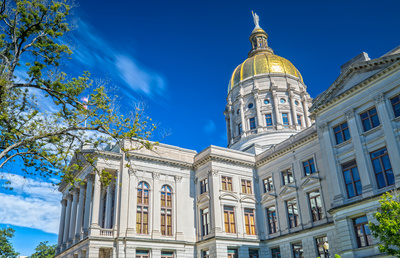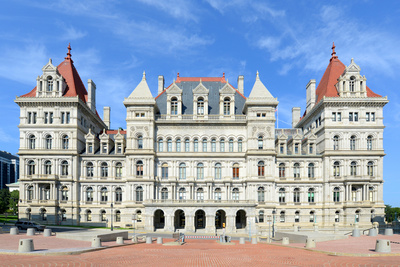As we’ve noted previously, states are continuing to consider legislation that would expand the sales and use tax base to personal and professional services. As of May 2019, 22 “taxation of services” bills have been introduced in 12 states: California, Connecticut, Florida, Minnesota, Montana, Nebraska, South Carolina, Texas, Utah, Virginia, Washington, and Wyoming.
Despite this continued interest, no state has successfully implemented a broad sales tax expansion to services. Hawaii, New Mexico, and South Dakota already tax services broadly, but not as a result of a recent comprehensive tax reform effort—the changes in those states were made many decades ago. There are also many more recent examples of states passing sales tax base expansions (either broad or targeted) and then repealing them shortly thereafter when lawmakers realized they would result in negative impacts on the state economy (Florida, Massachusetts, Michigan, and Minnesota).

Below are details on each state that has proposed a tax on service.
- California. Continuing his years-long effort to tax services, Senator Bob Hertzberg’s (D) latest bill (SB 522) was introduced in February but remains only a concept draft rather than a specific policy document. While SB 522 lacks any specific prescriptions, it’s clear from the Senator’s previous efforts that he would apply the sales tax to business services such as those provided by lawyers, consultants, and accountants—as a way to counteract what he perceived as corporate tax giveaways in federal tax reform. It’s unclear how lawmakers might incorporate these ideas into broader efforts at restructuring its tax code, but the California Chamber of Commerce released a 56-page report in May arguing that a new professional services tax would increase costs across all economic sectors, create a competitive disadvantage for in-state firms, and create a new tax on labor.
- Connecticut. In his 2020-2021 biennial budget (SB 877) Governor Ned Lamont (D) called for expanding the sales tax base to include a wide array of new services including building maintenance, laundry services, certain legal services, and accounting services. He argued that these changes, along with new taxes on digital goods, legalized marijuana, and sports betting were necessary to keep the state revenues current with modern economic trends. Among the many roadblocks that have confronted the governor since the budget’s February introduction was a committee substitute that constrained his original plan by winnowing the list of services down to only specified parking services, dry cleaning and laundry services, (excluding coin-operated services), and certain interior design services. Budget discussions are fluid and ongoing, but it currently seems that Lamont’s earlier vision for broad news taxes on an array of services is dead.
- Florida. Representative Amy Mercado (D) introduced a bill (HB 1377) in March that would levy the sales tax on all services except those specifically exempted. Florida is famously averse to aggressive tax changes, so this bill was essentially dead on arrival. It was postponed indefinitely on May 3.
- Massachusetts. In April the Massachusetts Senate formed a working group to review the state’s tax code in an effort to find paths for modernization. According to our sources on the ground, taxation of services will almost certainly be among the possibilities considered. The committee will hold a series of closed-door meetings and receive public testimony over the in the coming months.
- Montana. Representative Kerry White (R) introduced a proposal (HB 300) to establish a new state sales tax that would have applied to a variety of services, but the bill never made it out of committee.
- Nebraska. Over the course of their legislative session, Nebraska legislators introduced five bills (LB 162, LB 314, LB 497, LB 507, LB 508) that would have taxed some collection of services; three would have imposed the tax only on personal services, while the remaining two would have also included professional services. While Nebraska lawmakers had been promising property tax relief for years, Governor Pete Ricketts (R) consistently opposed any plan that was funded by new taxes, which doomed any efforts to tax services his year. Undeterred, lawmakers have introduced two resolution (LR 186, LR 207) that would convene interim study committees to study the idea for possible consideration in future legislative sessions.
- Rhode Island. In her January executive budget, Governor Gina Raimondo (D) recommended the legislators consider include new services to the sales tax base such as lobbying, interior design, and services to commercial buildings, but that suggestion never made it into a formal legislative vehicle.
- South Carolina. Prior to the start of the 2019 legislative session, we had gotten reports that lawmakers were preparing to make a serious push to expand the sales tax to services. As the months went by the rumors continued but no legislation emerged, until, a week before adjournment, Speaker Pro Temp Tommy Pope (R) introduced HB 4532. Among its many provisions, the bill would have applied the sales tax to a variety of new services including certain construction, information, real estate, and accounting services in order to pay for a 2 percent rate cut. It didn’t make it out of committee before the end of the session, but we expect the issue to come up again in 2020.
- Texas. On March 1, Representative Drew Springer (R) introduced a bill (HB 2915) that would have expanded the list of taxable services to include accounting, debt management, and other personal services. The bill was never heard in committee and died with the end of the session.
- Utah. Governor Gary Herbert (R) used his January State of State address to make the case for modernizing the state’s tax code by expanding the sales tax base to new services and then introduced legislation (UT HB 441) to that effect in February. The bill would have taxed virtually all services apart from services rendered by religious institutions, educational institutions, and public transit in order to pay for a reduced sales tax rate. While the bill died in the House, the governor has said that he plans to call a special session this summer to debate the issue again. An interim committee also met this month to discuss the impact of a tax on services in the state.
- Virginia. At the end of 2018 and again at the beginning of 2019, Virginia lawmakers introduced legislation that would have expanded the sales tax to certain services. The Republican-sponsored House bill (HB 966) would have applied the tax to all services, except business-to-business, educational, health care, and real estate services. The Democratic-sponsored Senate bill (SB 390) would have expanded the sales tax base to include a set of delineated services, such as non-coin-operated laundries, pet care, landscaping, and spa services. Neither bill made it out of its first committee.
- Wyoming. Lawmakers in Cheyenne came out with a slate of aggressive tax reform proposals early in the session, including a bill (HB 67) that would have expanded the sales tax base broadly to include "personal services," "business services" (excluding banking and legal services), and "engineering and management services." Despite the fast start, all of these bills quickly ran out of steam and mostly languished in committee until the end of the session.





